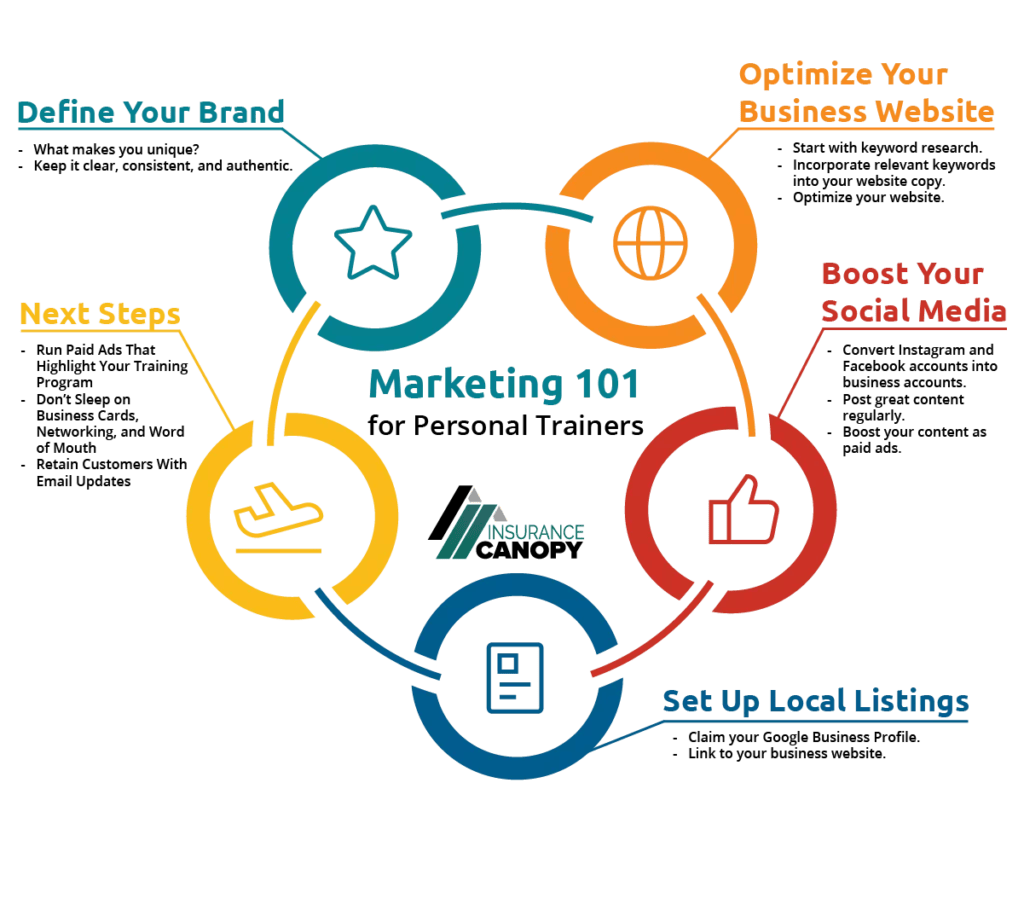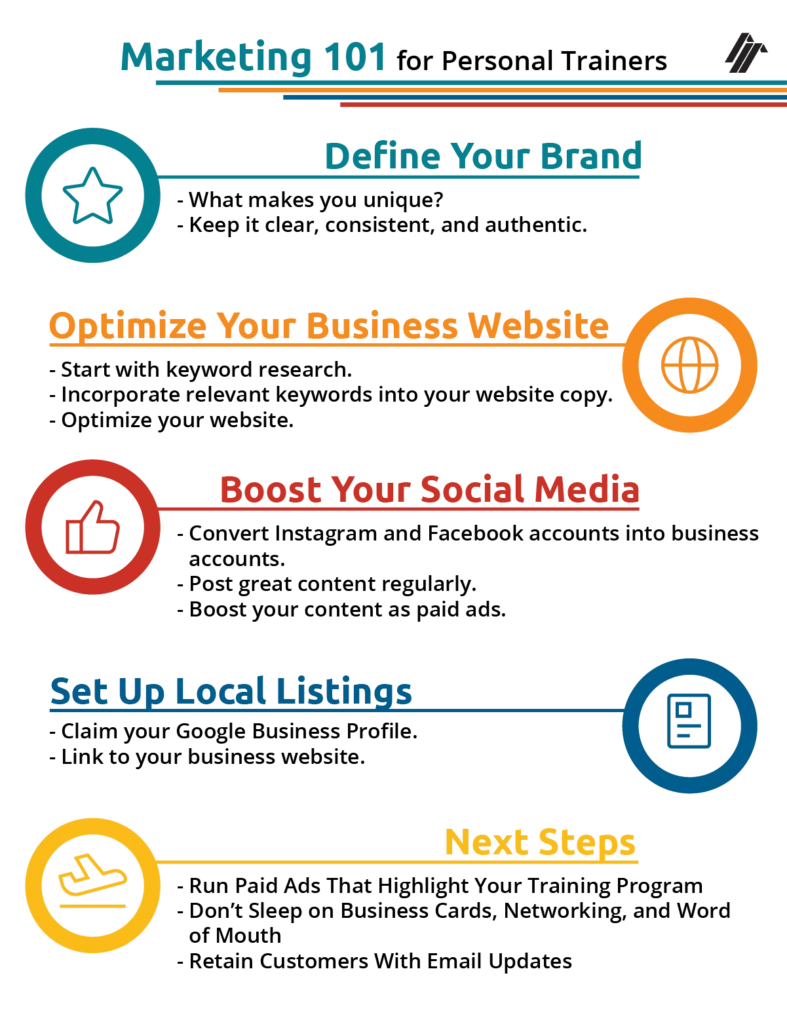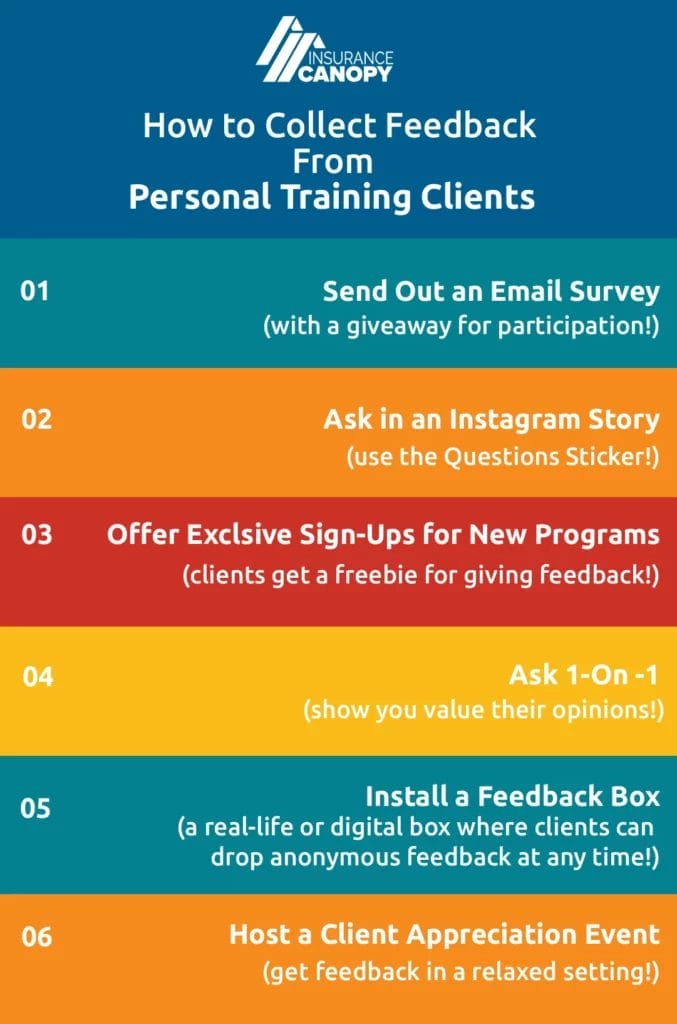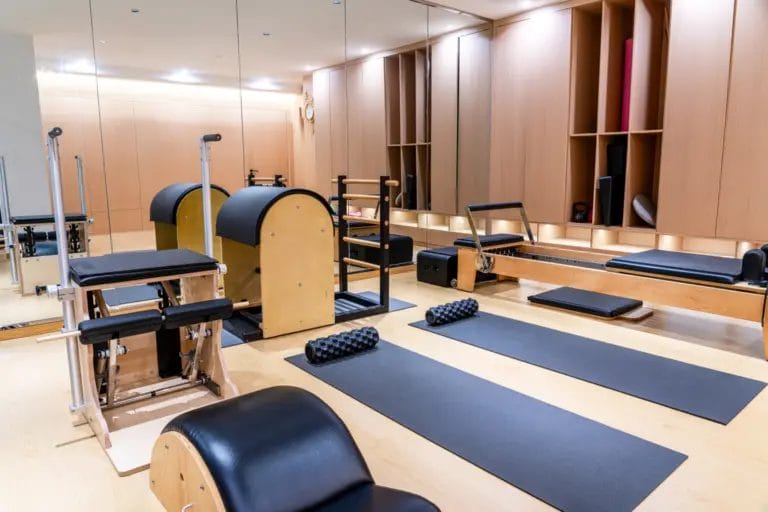- Last Updated:
- 10/18/2024
- Julis Navarro
Personal trainers, you put in the work. From managing multiple clients, keeping yourself on track, and planning workout sessions, it’s easy to let your big-picture business efforts fall by the wayside.
When it comes to growing your personal training business, you have to start somewhere, build momentum, and then — hey, it’ll soon be like muscle memory!
Learn how to make more money as a personal trainer, including the one thing you can do in under 10 minutes to give yourself an instant credibility boost.
7 Effective Ways to Grow Your Personal Training Business
Your industry peers earn an average of $29 an hour. But the high-earning range of your profession rakes in more than $50 hourly.
Why not aim bigger? Here are some no-pain-no-gain strategies for building your client base and your bank account.
Invest in Continued Education
Your product is your expertise, so make it more appealing by keeping it updated. Think tech update rollouts — except it’s your training that keeps getting better year after year.
If you’re already certified, you know you need to complete continuing education (CE) courses to renew your personal training certification. This is a great starting point to stay informed on fitness trends and techniques and build upon your foundational knowledge.
Do you have a niche? If you’re finding it difficult to stand out, consider investing in an earned specialization. There are many to choose from, and you can find one (or two, if you’re feeling ambitious!) that aligns with your personal interests.
Here are just a few specializations you could go for:
- NASM Women’s Fitness Specialization
- ISSA Senior Fitness Specialization
- ACE Pain-Free Movement Specialization
- StrongFirst Kettlebell Instructor Certification
- Functional Range Conditioning (FRC) Certification
In addition, you can stay up to date by attending workshops and seminars. Many of these are available online, so you’re not just limited to ones in your area.
NETA offers multiple workshops, some of which count toward certification, on topics like bodyweight strength building and conditioning for pickleball. Or, check out Functional Movement Screen (FMS) for virtual and in-person courses.
And during your free time, keep learning with informal education. Your favorite podcasts, websites and blogs, and fitness-focused YouTube channels are a casual but effective way to stay in the know.
Find the Right Pricing Model
It’s time to talk about everyone’s favorite topic: pricing. Just like you come to know the sweet spot between pushing your physical limits and over-exerting, you’ll need to balance affordability with profitability when it comes to setting or reevaluating your pricing.
Using the national average as a guide, the baseline personal trainer range is $55 to $65 per hour. From there, research what other personal trainers in your area are charging. Unless you’re solely offering training online, this is the only way to know what you’re up against in your local market.
Then, choose your pricing model. The most common models are price per hour (or per 30 or 45 minutes), price per session, session packages, monthly membership, and tiered pricing. You can combine elements of these models to find what works best for you.
If you’re serious about growing your personal training business, don’t be afraid of increasing prices. In fact, with the cost of inflation, you’ve probably already considered doing so.
Just remember the value you offer (like your new specialization!) should justify your pricing. Be crystal clear with your current clients about any changes and let them know how you decided on those new numbers.
The best way to convert leads who are on the fence is to offer them a discounted month or two. Once they start seeing those results, they’re more likely to work this new priority into their budget.

Fine-Tune Your Marketing Strategy
Hopefully by now, you’ve implemented some semblance of a marketing strategy. After all, you can’t expect to grow your personal training business if people don’t know how awesome your training is — or that it even exists!
With about 1.1 million personal trainers in the U.S. vying for clients, you need to whip your marketing plan into shape in order to stand out.
Fitness marketing is a beast of a topic, so here are the four main things you absolutely must do to get started.
Define Your Brand
Your brand is how you present yourself to the public, and, unfortunately, it can’t just be “personal training” anymore. It has to be “personal training” plus “an extra-special something”! Hone in on what makes you unique (your niche, your personality, your background story, etc.) and build your brand around that.
Your brand must be:
- Clear
- Consistent
- Authentic
- Reflective of your unique value proposition (what you offer that no one else does)
Optimize Your Business Website
SEO, or search engine optimization, is how you can get found on search engines, the main one being Google. SEO is all about long-term gains, so learn the basics and keep a steady, strong pace.
Begin by researching keywords (i.e. “best personal trainer [your city name]” or “affordable personal trainer”) to find out what your potential clients are searching online. Now take those high-volume, low-competition keywords and incorporate them into your website copy in fitness-related content that leads will find valuable, monitor, and repeat.
Boost Your Social Media
You’ve got your Instagram and Facebook accounts. Have you already converted them into business accounts? It’s free and fast, plus it’ll give you access to analytics to help track what leads like and don’t like on your page.
Social media is where you can build brand awareness and community engagement by posting regularly and making yourself visible. Did you know that content marketing can increase your lead generation? 74% of companies say so!
Showcase your personal training style, how you stay motivated, client testimonials, and snippets of your latest sessions. Your entire day-to-day can be made into content — you just have to record and hit “share.”
Turning your existing content is easy, too. Just boost with Meta Ads, and you’ll get more eyes on your stuff across Instagram, Facebook, WhatsApp, and more. Set a small budget for your first campaign, see how it does, and then go from there.
Set Up Local Listings
Claim your free Google Business Profile. This profile helps your personal training business show up in Google Search and Google Maps — especially helpful in reaching local searchers! Make sure all of your information is accurate and then link to your business website.
On average, a verified Google Business Profile gets about 200 clicks a month, and 48% of those clicks lead to website visits.



Tailor Your Training for Your Exact Clients
There is no cookie-cutter approach to training clients. Be sure you put this into practice when designing sessions and plans for your clientele.
- Understand their demographics: Age, fitness levels, and work and family obligations all play a part in how your clients approach their journeys. By considering these factors, you can set realistic goals they can work toward.
- Create custom plans for specific needs: Whether it’s weight loss, strength, flexibility, or mobility, your clients have different goals. Tailor training so they can make the most of their sessions with you.
- Lean into your niche: If you have a specialization clients come to you for, highlight their plan and make adjustments so that it works for your exact clients.
- Collect feedback to identify unmet needs: You do your best, but there may be some issues or concerns with certain clients that go overlooked. Ask for feedback so you can make steps toward improvement.

Use Technology to Streamline Your Business
Let smart tech take care of the little things so you can focus on growing your personal trainer business.
- Client management: Mindbody and Acuity Scheduling for online booking and automated reminders.
- Workout programming: Trainerize and PT Distinction for creating custom workouts; ChatGPT for AI-created workout plans you can then tailor.
- Payment processing: Square, PayPal, or Stripe for digital invoices and payments.
- Social media automation: Hootsuite and Later for scheduling social media posts in advance.
- Client tracking: MyFitnessPal and Cronometer for helping clients log meals and other notes.
Partner With Organizations and Small Businesses
Partnering with related small businesses and organizations is a tried-and-true method to boost revenue.
Start by identifying potential partners: local gyms, wellness centers, nutritionists, physical therapists, health food stores, apparel and gear boutiques — the list goes on!
Next, offer joint promotions that benefit both businesses, such as discounts on sessions when customers make a purchase at a partner business. You can also host pop-up fitness events and giveaways or co-sponsor local events.
There are so many ways to partner, so get creative and watch both your businesses reach new PBs.

Boost Your Credibility With Insurance
Finally, perhaps the easiest thing on this list — and under 10 minutes to complete — is getting personal trainer liability insurance.
Insurance isn’t just a must-have safety net for keeping your business financially protected. It’s also an effective trust signal that can help you attract new clients by showcasing your high standard of professionalism. If things go wrong, such as clients getting hurt, damaging property, or having unmet expectations, you have coverage in place to make things right!
With policies starting at just $15/month from Insurance Canopy, there’s no reason not to get insured — your business will thank you.
There’s an increasing demand for wellness and lifestyle training according to 41% of our policyholders. Keep up with your industry as an insured personal trainer.
FAQs About Growing Your Personal Training Business
What Are the Best Ways to Retain Existing Clients?
Focus on personalization, offer regular check-ins, maintain strong communication, and offer a loyalty program to keep clients engaged and loyal.
How Can I Differentiate My Personal Training Services From Competitors?
Differentiate your personal training services by researching your competitors and identifying what’s missing in the local market. Then, incorporate that specialization into your training!
Or, focus on what makes you unique and what you do best (your USP) and highlight it across all of your marketing messaging.





